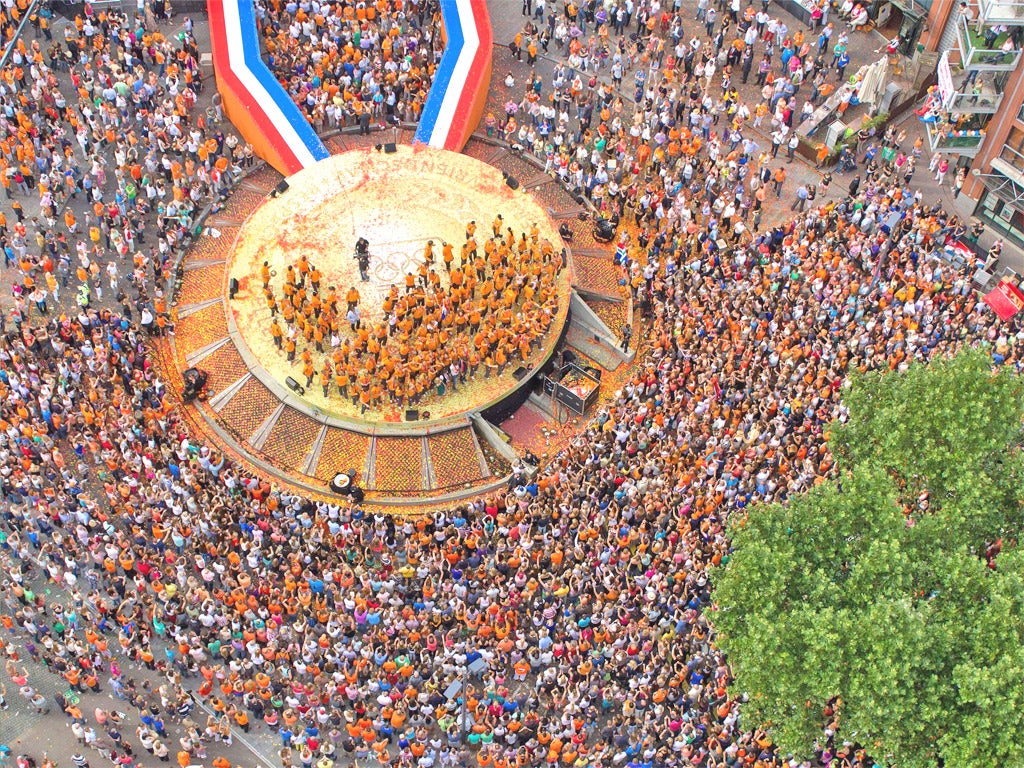
Your support helps us to tell the story
From reproductive rights to climate change to Big Tech, The Independent is on the ground when the story is developing. Whether it's investigating the financials of Elon Musk's pro-Trump PAC or producing our latest documentary, 'The A Word', which shines a light on the American women fighting for reproductive rights, we know how important it is to parse out the facts from the messaging.
At such a critical moment in US history, we need reporters on the ground. Your donation allows us to keep sending journalists to speak to both sides of the story.
The Independent is trusted by Americans across the entire political spectrum. And unlike many other quality news outlets, we choose not to lock Americans out of our reporting and analysis with paywalls. We believe quality journalism should be available to everyone, paid for by those who can afford it.
Your support makes all the difference.Small businesses have responded furiously to claims by the Culture Secretary, Jeremy Hunt, that the Olympics were "a very good period" for tourism.
Travel organisations and shopkeepers around London and many working in tourism outside the capital described the period of the Games as one of their worst and questioned how easy it would be for many small firms to recover.
They were angered yesterday when Mr Hunt, pictured, denied there had been a fall in trade and went on to claim the Games had been good for the industry.
Mr Hunt told i: "It was quieter in the first week of the Olympics, but picked up a lot in the second week. West End businesses did well – theatre bookings up 25 per cent on a year ago according to Andrew Lloyd Webber, restaurant bookings up 20 per cent according to Visa."
But Neil Wootton, managing director of the sightseeing specialist Premium Tours, said business was down by 42 per cent year on year: "It will take a long time to repair the shortfall of this summer. The knock-on implication has been felt by all attractions, venues, hotels and pubs we use – with some privately-owned establishments calling us in panic-stricken attempts to drum up business. The biggest concern is how many smaller companies, which depend upon the key selling months of June, July and August, can survive the winter."
JacTravel, a hotel wholesaler, reported that London bookings were down by more than one-third – in contrast with a 45 per cent rise in sales in key Continental cities. A spokesman said: "There was a clear displacement of tourists who would normally come to London, though UK domestic tourists began to appear after word got out that London was deserted and there were incredible bargains to be had."
A West End art dealer with a high proportion of overseas customers, Rosslyn Glassman, said: "Turnover has been half that of regular weeks."
He said official warnings to avoid the capital had been far too strident.
The Culture Secretary rejected the criticism. "What we actually had last week was record numbers travelling on the Tube – 4.61 million people on certain days. We got everyone to their Olympic events on time. We wouldn't have been able to do that if we hadn't warned people that central London was going to be busy, discouraging some non-essential travel."
Figures released by Heathrow's owner, BAA, revealed far fewer arrivals than expected for the Olympics. The company had predicted that 26 July, the day before the Opening Ceremony, would be the busiest day in its history for arrivals, with a record 138,000 passengers touching down. The forecast was 36 per cent higher than the actual number of travellers. With just 102,000 arrivals, the day proved quieter than an average summer's Thursday at Europe's busiest airport.
In a speech at Tate Modern on the South Bank, Mr Hunt unveiled a £10m plan to increase inbound tourism by one-third to 40 million by 2020.
The shortfall in inbound visitors hit business elsewhere in Britain. Nick Brooks-Sykes of Bath Tourism Plus described the Olympics period as "quite difficult" for the city, with a drop of up to one-fifth in visitors.
Join our commenting forum
Join thought-provoking conversations, follow other Independent readers and see their replies
Comments